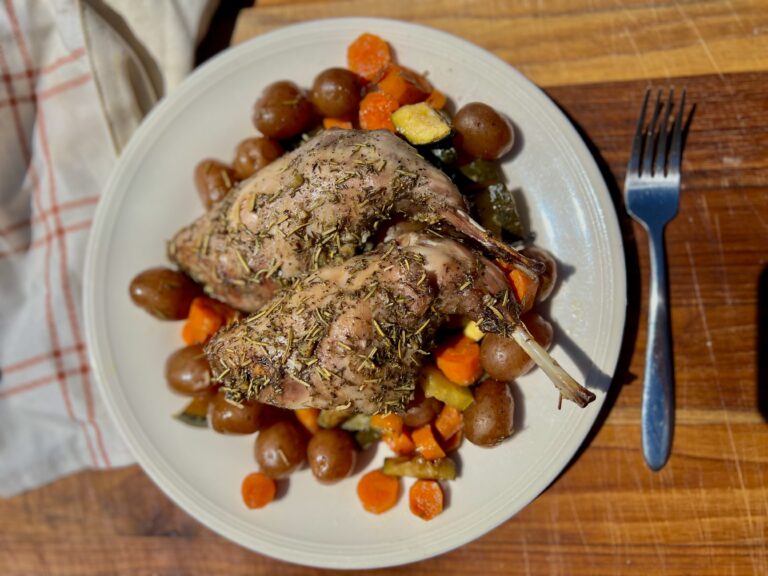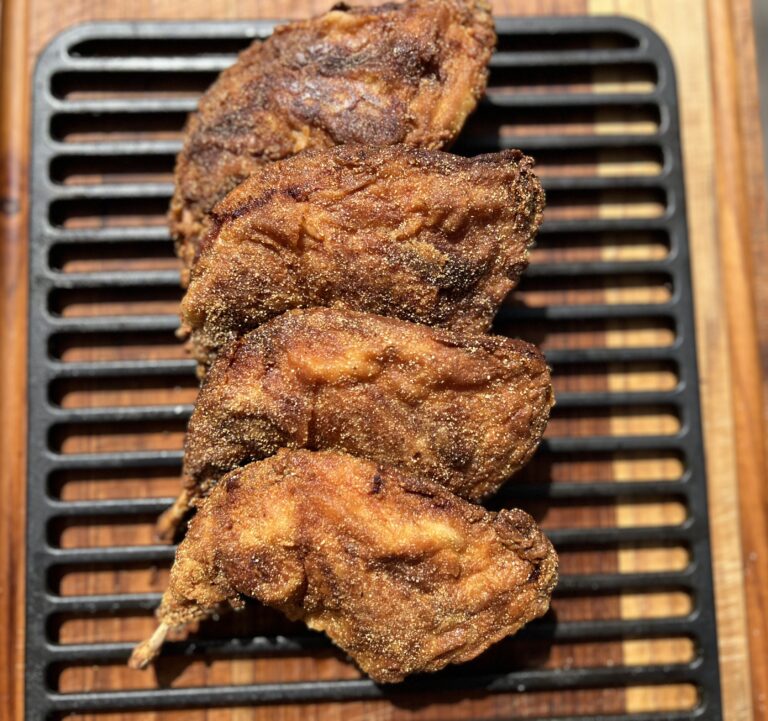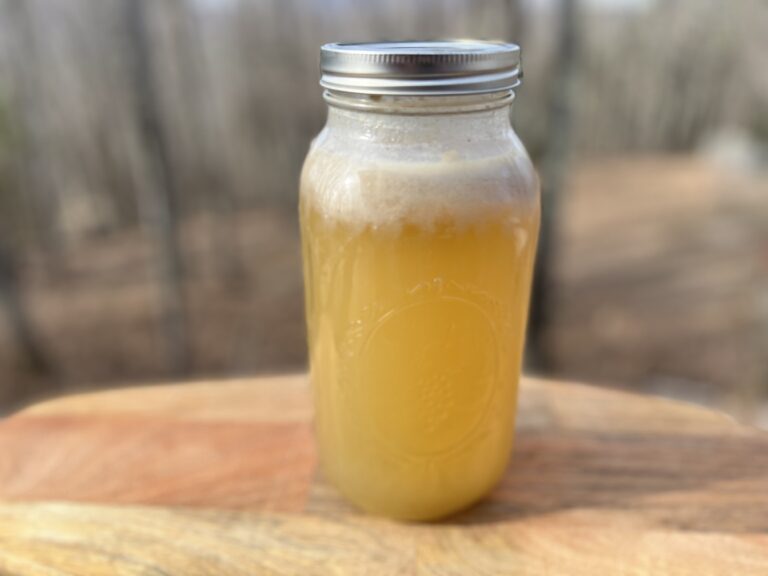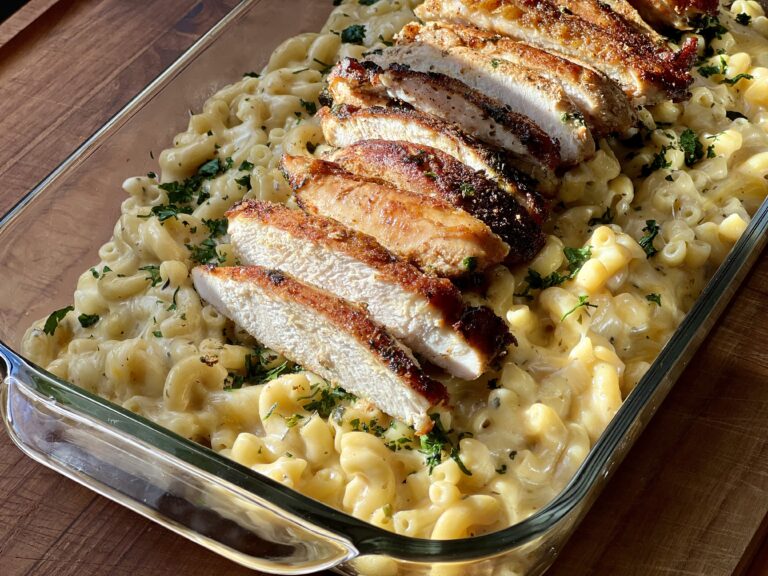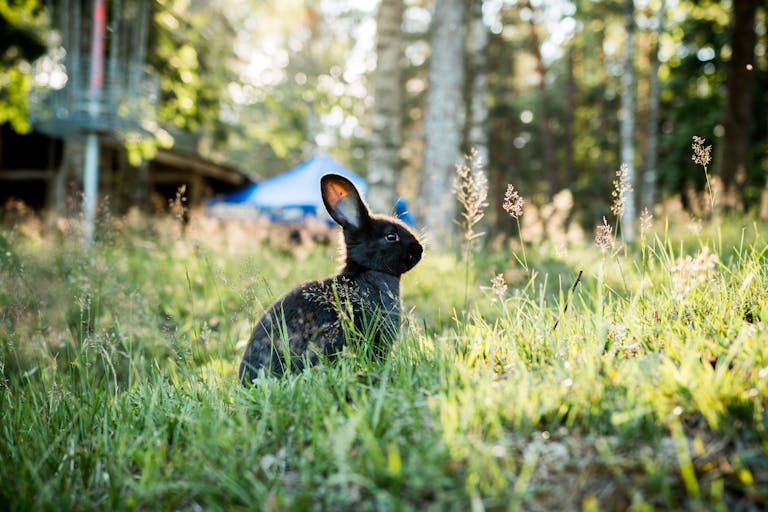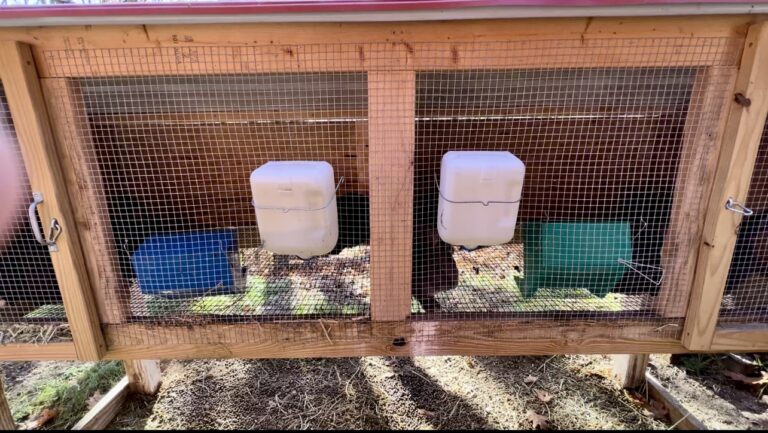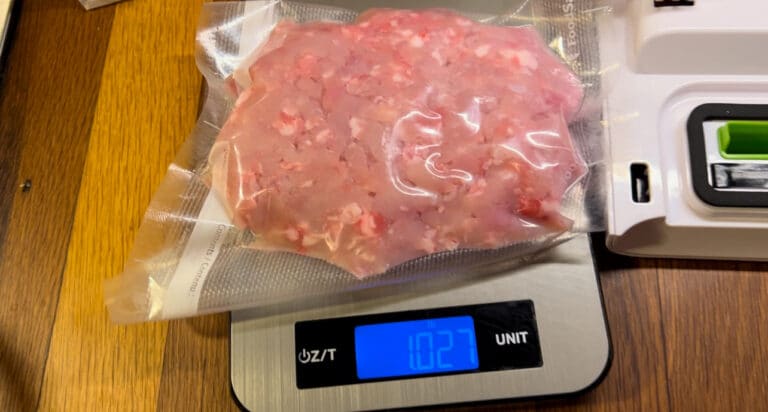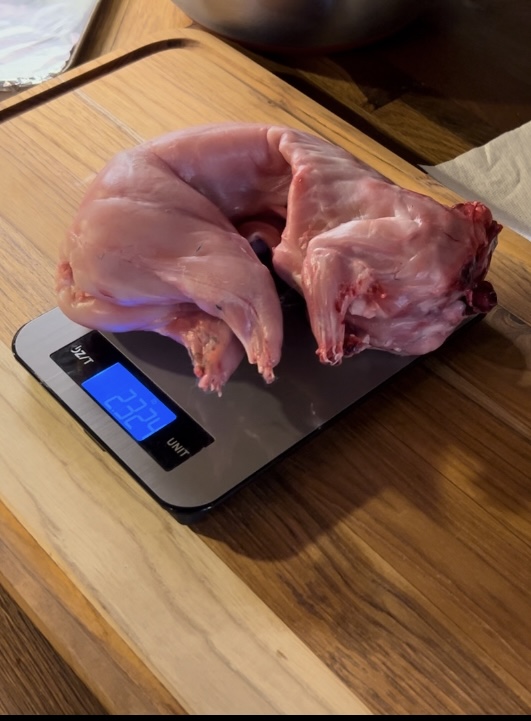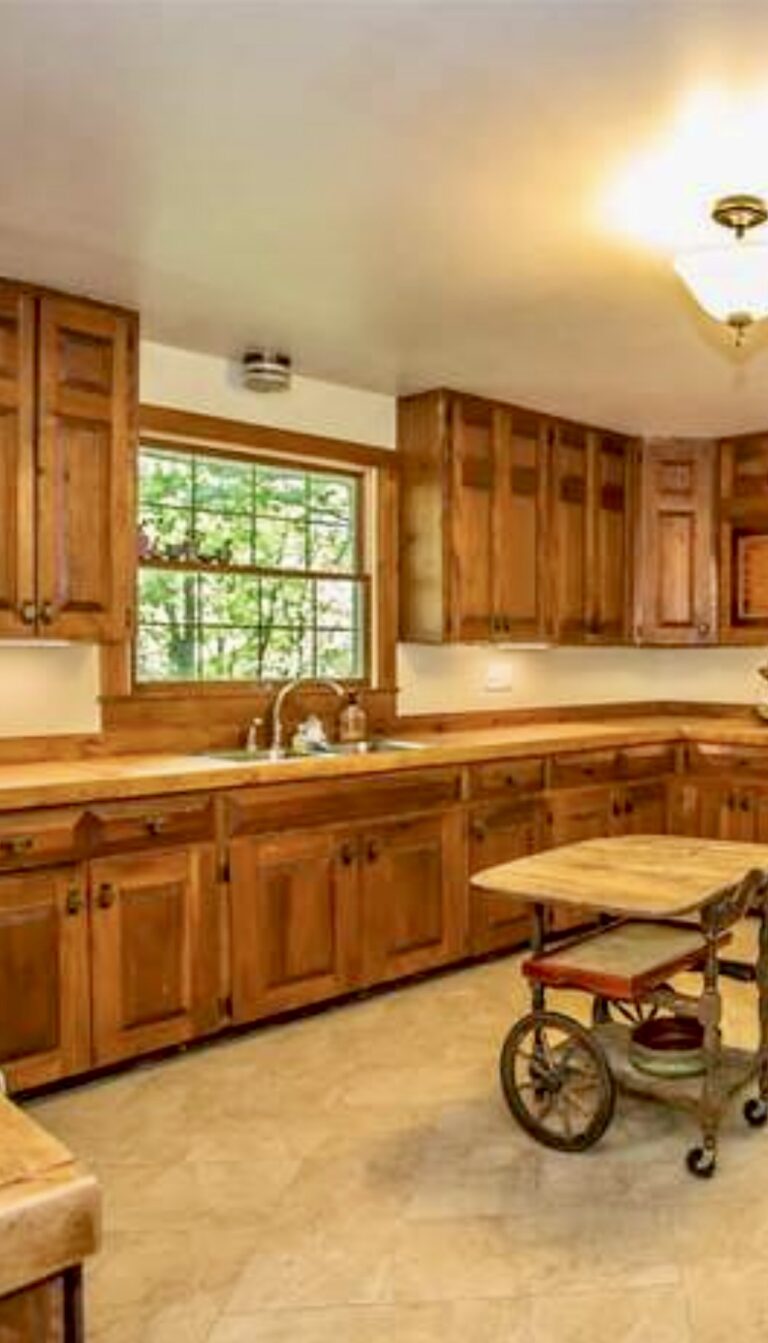Raising Meat Rabbits for Beginners: Supplies to Get Started
If you’re thinking about raising meat rabbits, you’re in the right place. I am going to walk you through exactly what you need to start raising meat rabbits for beginners, so you can raise meat rabbits on your own homestead! Lets go over what supplies we have on our homestead—including what worked, what didn’t, and what I wish I knew from the start.
This guide is packed with practical advice for getting started without wasting money on the wrong gear or supplies. Let’s get into it.
Also check out other information I have on Raising Meat rabbits in posts like Cost to Raise Meat Rabbits in a Year.
Start with the Right Rabbit Hutch
Your rabbits need a secure, weather-resistant hutch. When we first started out, we bought a cheap hutch off Craigslist. Big mistake—it didn’t hold up to predators or our harsh New Hampshire winters.
Our advice? Build your own.
A DIY rabbit hutch lets you:
- Use heavy-duty wire (more on that below)
- Customize for your climate and space
- Save money in the long run
Just don’t use pressure-treated wood or cheap mesh wire—your rabbits’ health and safety depend on it.
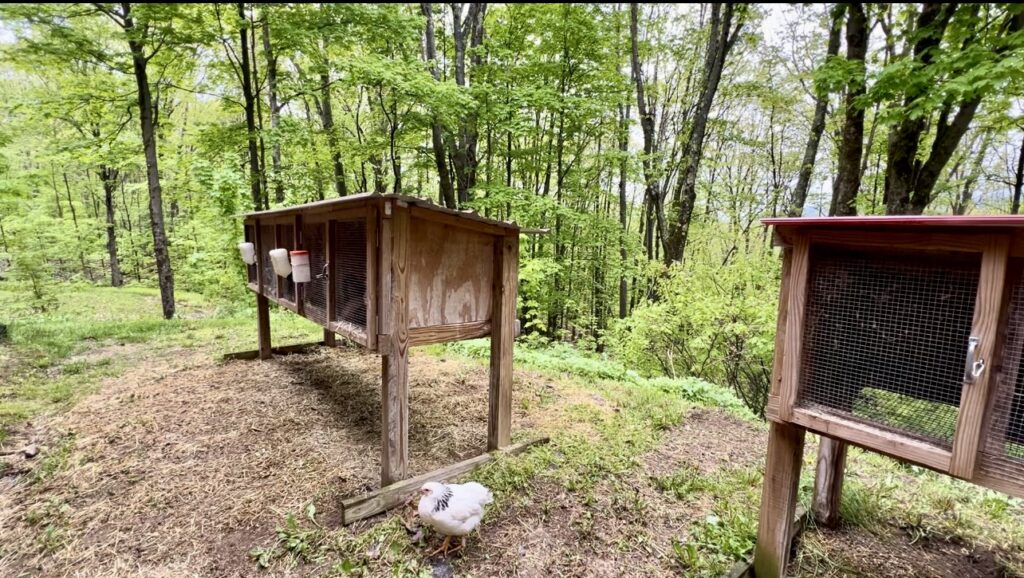
Our Rabbit Hutch Build
Water Systems That Actually Work
For water, you’ll need different solutions for summer and winter.
Summer: No-Leak Water Bottles
We’ve tested every kind of water bottle out there. The winner? Half-gallon bottles from Tractor Supply.
- They don’t leak (squeeze before flipping them over—that’s the trick).
- They’re large enough to last a couple of days.
- The nozzle is metal, which rabbits won’t chew.
Avoid smaller plastic bottles with flip tops—they’re more work and prone to breaking.
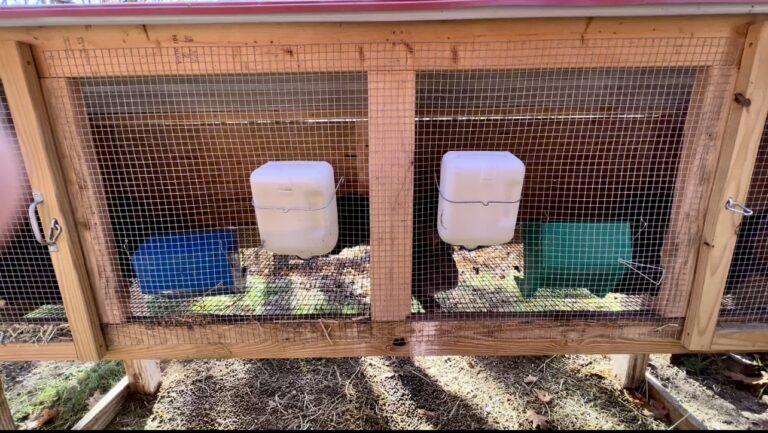
Winter: Metal Water Bowls
In freezing temps, bottles just won’t cut it.
Use metal bowls and:
- Fill them twice daily with water.
- Have backup bowls on hand so you can swap out frozen ones.
- Use wood bases to reduce tipping (we made ours—super simple).
We’ve also tried heated bowls, but our rabbits chewed the cords and plastic. Stick with metal and skip the plastic.
Feeding: What Works Best for Meat Rabbits
Pellet Feed
Don’t make our early mistake: buying overpriced pet rabbit food.
Instead, head to the feed section (not the pet aisle) and get meat rabbit pellets—usually 50-lb bags.
They’re:
- Cheaper
- More nutritionally complete
- Easier to find at places like Tractor Supply
Timothy Hay
Your rabbits will also need hay for fiber and nesting.
Buy the big bale—not the little bags in the pet section—and store it in a dry place.
Feeders
Use metal gravity feeders inside the hutch.
- Small ones for bucks and non-lactating does.
- Larger ones for grow-outs and does with litters.
Keeping them inside the hutch helps socialize your rabbits and prevents wildlife from tampering with them.
Nesting and Bedding
Nest Boxes
Skip the $30 store-bought ones and make your own out of non-treated plywood.
We have two sizes:
- One for kindling (with a high front lip)
- One for older kits (easy access)
Line them with Aspen shavings (not cedar—it’s toxic) and a little Timothy hay.
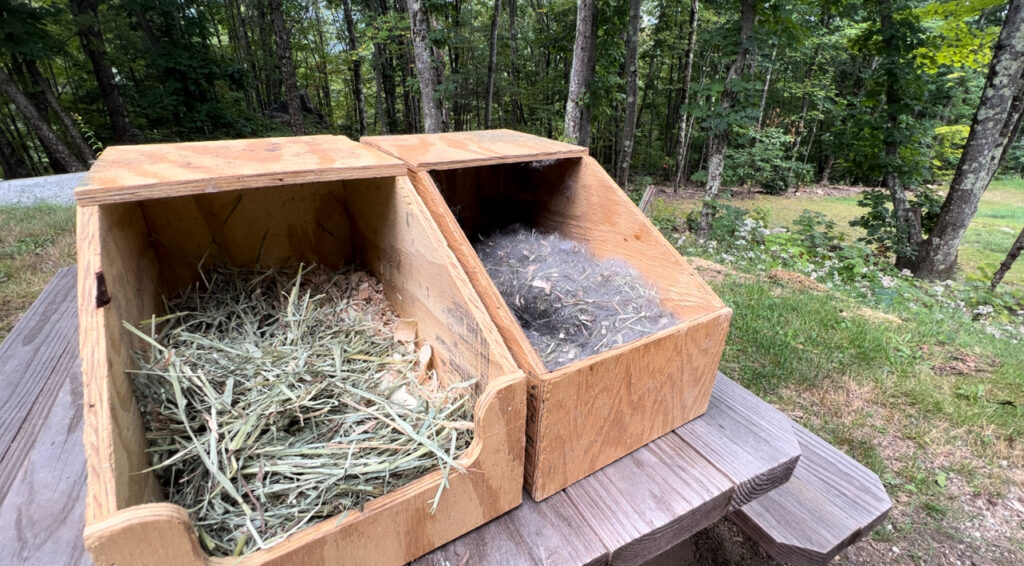
Resting Mats
Wire floors are great for hygiene, but your rabbits need a break from the wire.
We use scrap wood resting mats—simple, cheap, and easy to clean.
Wire Matters
If you build your own hutch, don’t use thin hardware cloth for the floor. It rusts and bends too easily.
Instead, go for heavy-duty wire mesh with half-inch spacing. It’s more durable and better for the rabbits’ feet.
Keep Track with a Breeding Log
A rabbit breeding log is essential. Track:
- Breed dates
- Nest box dates
- Kindling and weaning
- Butcher dates
You can use a binder, spreadsheet, or printable log—whatever works for you. Just make sure you keep up with it.
Essential Tools
A few more things you’ll need:
- Nail clippers: Their nails grow fast.
- Brush: Especially during molting seasons.
- Processing gear: If you’re raising for meat, invest in a quality dispatcher and hanging setup (we use cervical dislocation).
Final Tips for Beginners
- Start simple. You don’t need every gadget right away.
- Build what you can. Nest boxes, hutches, water bowl holders—you’ll save a lot.
- Learn as you go. Mistakes happen. Just adjust and improve.
Raising meat rabbits for beginners, is rewarding, and it’s really something you can do at any scale. Whether you’re just feeding your family or planning to scale up, having the right setup makes all the difference.
Want to see our exact setup in action? Head over to the Stone Hearth Farmhouse YouTube channel where I walk through every item in detail and share my journey raising meat rabbits.
If you’re starting your own Rabbitry, I’d love to hear from you. Leave a comment with your questions or comments!
Check out our Amazon Store to find our list of favorite meat rabbit products. We do earn from qualifying purchases at no extra cost to you if you purchase through our link. Thanks for your support!
Good luck with your homestead journey—raising meat rabbits is a decision we’ve never regretted.

